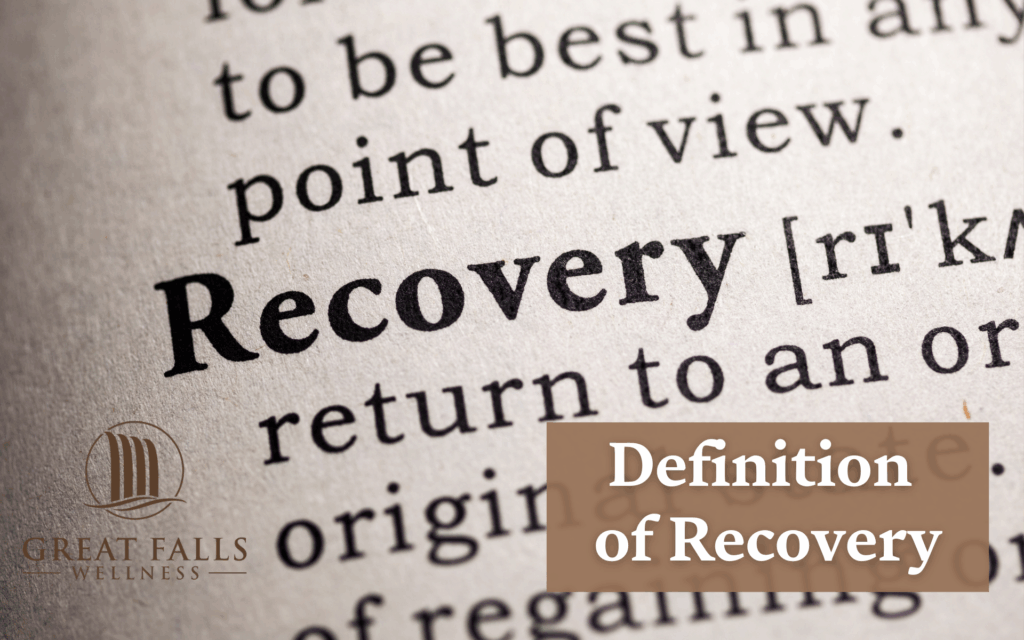
The definition of recovery from addiction varies by source, but shared themes appear. Recovery is a process of change, not a single event. It involves health, purpose, connection, and growth over time.
Public Health Definitions
The Surgeon General’s glossary offers a foundational definition of recovery: “A process of change through which individuals improve their health and wellness, live a self-directed life, and strive to reach their full potential. Even individuals with severe and chronic substance use disorders can, with help, overcome their substance use disorder and regain health and social function. This is called remission. When those positive changes and values become part of a voluntarily adopted lifestyle, that is called ‘being in recovery’. Although abstinence from all substance misuse is a cardinal feature of a recovery lifestyle, it is not the only healthy, pro-social feature.” Source
The SAMHSA definition of recovery uses closely aligned language: “SAMHSA defines recovery as a process of change through which individuals improve their health and wellness, live self-directed lives, and strive to reach their full potential. Recovery signals a dramatic shift in the expectation for positive outcomes for individuals who experience mental and substance use conditions or the co-occurring of the two.” Source
Together, these statements stress personal agency, wellness, and sustained improvements. They also distinguish remission from the broader lifestyle of being in recovery.
Research and Diagnostic Context
NIAAA defines recovery from Alcohol Use Disorder as pursuing remission and stopping heavy drinking. An individual may be considered “recovered” when both are achieved and maintained over time. Recovery also includes gains in functioning, social support, spirituality, and well-being. Continued progress in these areas can help sustain recovery. Source
DSM-5 adds useful timing terms for remission from Alcohol Use Disorder. Remission means no AUD criteria are met, except craving. Initial remission lasts up to three months. Early remission spans three months to one year. Sustained remission spans one to five years. Stable remission extends beyond five years.
These diagnostic and research lenses help set expectations and measure change. They also guide care plans and outcomes tracking.
12-Step Perspectives
If you’re looking for the Narcotics Anonymous definition of recovery, you may find the answer in their literature, which talks about a process of finding freedom from active addiction:
“As we recover, we gain a new outlook on being clean. We enjoy a feeling of release and freedom from the desire to use. We find that everyone we meet eventually has something to offer. We become able to receive as well as to give. Life can become a new adventure for us. We come to know happiness, joy and freedom.” –Basic Text
Narcotics Anonymous highlights recovery as deep change in thinking and living. As the Basic Text states, “Our disease involved much more than just using drugs, so our recovery must involve much more than simple abstinence. Recovery is an active change in our ideas and attitudes.” (Basic Text, Chapter 5)
NA and other Twelve Step programs place one person helping another at the center of recovery. Alcoholics Anonymous adds ideas like “restoration to sanity” and ongoing spiritual transformation. In these communities, people usually say they are “recovering,” not “recovered.” The wording reminds everyone that growth continues one day at a time.
Putting It Together
Across sources, the definition of recovery stresses progress, stability, and a fuller life. Public health definitions emphasize health, self-direction, and potential. Research definitions add measurable targets and timelines. Clinical systems provide remission terms that help structure care. Mutual-help traditions bring meaning, fellowship, and daily practice.
These views are complementary, not competing. Together, they show recovery as both measurable change and lived renewal.
Ready to start your journey to recovery? Contact Great Falls Wellness to learn more about our outpatient addiction treatment services in Northern Virginia.

